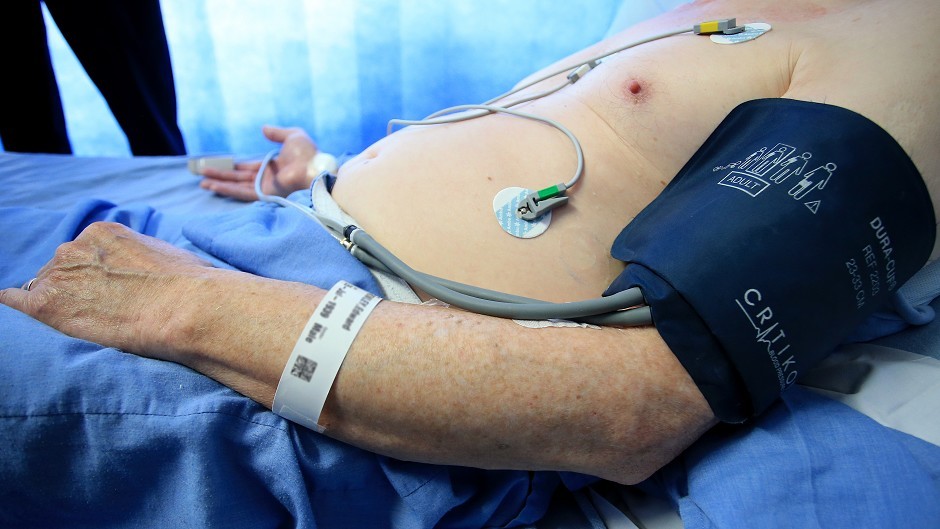The number of hospital beds in the north and north-east being blocked by healthy patients has more than doubled in the last three years.
Shock new figures from the Scottish Government show that in September only, 264 healthy people across the two regions were stuck in hospital for more than four weeks.
And in August, beds were unnecessarily occupied for the equivalent of 12,472 days in NHS Grampian, Highland, Orkney, Shetland and Western Isles hospitals.
In the same period three years ago, beds were unnecessarily occupied for just 5,901 days.
Labour health spokeswoman Jenny Marra last night accident and emergency departments were suffering as a result of the SNP being “blind to the problems in the north-east”.
But while Health Minister Shona Robison agreed the increase in delayed discharge was “disappointing”, she insisted the government was working hard to resolve the bed-blocking crisis.
Ms Marra said: “The SNP Government promised delayed discharge would be eradicated by the end of the year but the reality
is it is getting much, much worse.
“The consequence is longer waits at accident and emergency departments, and more pressure on our doctors and nurses.
“We have been warning for some time about the particular pressures on NHS Grampian but the Scottish Government seem blind to the problems in the north-east.
“I would ask again that Health Secretary Shona Robison works with the health board and council leaders to address the problems we are facing in the north-east in delivering the health care people expect.”
Across the region, NHS Grampian was the worst affected health board, with 49 people remaining in hospital for six weeks or more, according to the figures for September.
The health board had not discharged a total of 162 people who were fit to leave in the same month – a slight decrease on the previous month.
A spokeswoman for NHS Grampian said: “These latest figures show a slight decrease in the number of delayed discharges in Grampian, compared to an increase across Scotland.
“While this is a welcome development we are by no means complacent. Delayed discharge is a complex issue with many factors contributing to any individual having a delay in their discharge from hospital.
“It is deeply frustrating for a patient – along with their family and professionals caring for them – to have to remain in hospital when they are medically fit to leave.”
Ms Robison said: “Good progress has been made since (January), with the data for this August showing the number of occupied bed days has fallen by 4,000 when compared to the same month last year – an 8% reduction.
“In addition, the total number of delays and those delays longer than three days have also come down from September 2014.
“However, it is disappointing to see delayed discharge numbers increasing from the previous month. Local authorities and
NHS boards must do more to ensure the right care is available for people in the community when they are fit to be discharged from hospital.”
